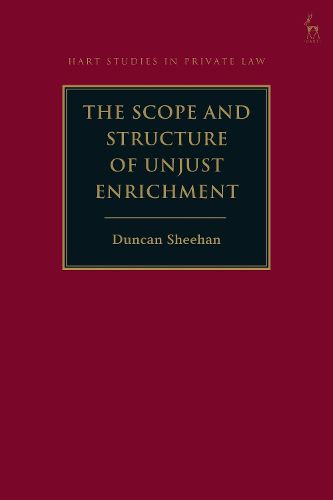Readings Newsletter
Become a Readings Member to make your shopping experience even easier.
Sign in or sign up for free!
You’re not far away from qualifying for FREE standard shipping within Australia
You’ve qualified for FREE standard shipping within Australia
The cart is loading…






This ambitious book grapples with the complex debates ongoing on the structure of unjust enrichment, proving to be a major contribution to the field.
Responding to the subject's critics, it presents a clearly articulated structure for this branch of private law, arguing that while unjust enrichment has the function of reversing defective enrichments (whether by performance or in another way) there is scope for normative pluralism in how the law achieves this.
Drawing heavily on comparative material from Germany, Scotland and South Africa the book then argues for a legal framework which combines elements of the absence of basis and unjust factors approaches. It assesses how that structure can be mapped against the causes of action that make up unjust enrichment, arguing that some are performance claims - reversing a deliberate, intentional performance - and some are non-performance claims. Other claims, often included in books on unjust enrichment, such as "necessity" should be excluded from the subject area. The book concludes with a treatment of defences.
$9.00 standard shipping within Australia
FREE standard shipping within Australia for orders over $100.00
Express & International shipping calculated at checkout
This ambitious book grapples with the complex debates ongoing on the structure of unjust enrichment, proving to be a major contribution to the field.
Responding to the subject's critics, it presents a clearly articulated structure for this branch of private law, arguing that while unjust enrichment has the function of reversing defective enrichments (whether by performance or in another way) there is scope for normative pluralism in how the law achieves this.
Drawing heavily on comparative material from Germany, Scotland and South Africa the book then argues for a legal framework which combines elements of the absence of basis and unjust factors approaches. It assesses how that structure can be mapped against the causes of action that make up unjust enrichment, arguing that some are performance claims - reversing a deliberate, intentional performance - and some are non-performance claims. Other claims, often included in books on unjust enrichment, such as "necessity" should be excluded from the subject area. The book concludes with a treatment of defences.